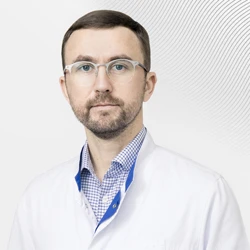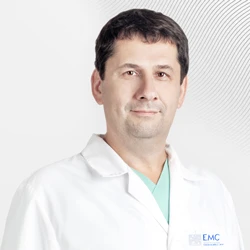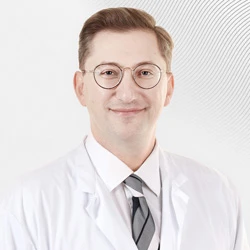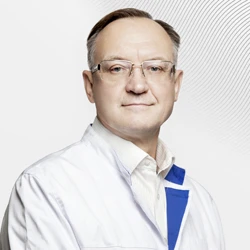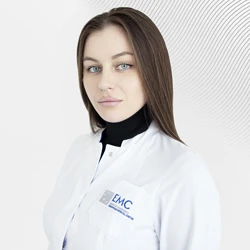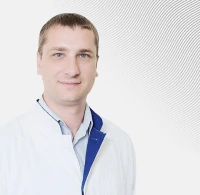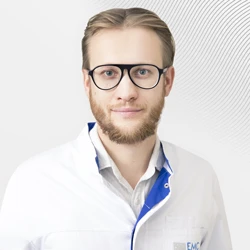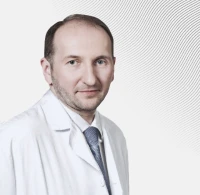Back pain is one of the most common reasons that force a person to see a doctor. According to statistics, 90% of people face this problem during their lifetime.
Back pain can be caused by various pathologies, ranging from injuries and infections to malignant tumors, but most often, after all the necessary diagnostics, the patient is diagnosed with degenerative (age-related damage) changes in the spine, and hernias remain the most common pathology. intervertebral disc.
Back pain: a diagnostic plan
When examining a patient complaining of back pain and taking an anamnesis, the doctor first pays attention to the nature of the pain, the age of the person, the presence or absence of weakness in the extremities, as well as symptoms such as chills, fever, urination problems, weight loss, and if the patient's general well-being remains good, the doctor has there is reason to believe that the pain is caused by a hernia.
An MRI (magnetic resonance imaging) scan helps to provide an accurate picture of the condition of the intervertebral discs. An X-ray in the case of hernias can be ineffective and is usually prescribed when the doctor suspects other serious pathologies.
An intervertebral disc is a fibrous–cartilaginous formation, or, more simply, pads that push apart and connect the vertebrae, thereby ensuring their mobility. The disk consists of a semi–liquid core and a strong multilayer wall - a fibrous ring.
Treatment of intervertebral hernias
Treatment of a herniated disc can be both conservative and surgical. As a rule, the doctor first suggests conservative treatment methods to the patient. Exceptions are cases when disorders in the spine cause such dangerous symptoms as bladder and intestinal dysfunction, numbness or stabbing sensations in the groin and inner thighs, severe muscle weakness, significant loss of sensitivity, unbearable pain that even narcotic drugs do not relieve, sexual dysfunction. In the presence of these problems, surgical treatment may be urgent.
Conservative treatment of a herniated disc includes correction of motor activity, anesthesia with medications and the appointment of muscle relaxants, physical therapy and manual therapy, therapeutic blockades.
If conservative treatment has not helped, and the pain remains unbearable and continues to significantly reduce the patient's quality of life, then surgery is possible.
Herniated disc surgery (most often lumbar) is still one of the most common neurosurgical procedures. The EMC Neurology and Neurosurgery Clinic performs all types of spinal surgery, but prefers modern minimally invasive technologies, such as microdiscectomy and endoscopic discectomy (removal of part of the disc through a small incision in the skin)
.
Prevention of intervertebral hernias
Modern medicine makes it possible to rid patients of herniated discs even in the most difficult cases, and 90% of patients return to a full life. However, for back pain, it is necessary to consult a doctor as early as possible in order to undergo all examinations and identify degenerative spinal disorders during the procedure. Proper lifestyle, nutrition and distribution of physical activity will help prolong the health of the spine and avoid serious problems.
Some patients after surgery experience the so-called "unsuccessfully operated back" syndrome, which occurs after single or multiple spinal surgeries and is characterized by chronic, sometimes unbearable pain, sleep disorders, depression, and a sharp loss of performance. There can be many reasons for this syndrome, for example:
- incorrect diagnosis,
- insufficient preoperative examination,
- recurrent hernias
- compression of nerve roots by scar tissue or disc remnants, etc.
To determine the possible cause of the pain, an MRI scan is performed, and based on its results, either symptomatic conservative treatment (pain relief) or repeated surgery is prescribed. In some cases, the technique of neuromodulation by high-precision spinal modulation is effective, when electrodes are installed through a small incision in the skin in the epidural space that stimulate nerve roots and relieve pain.
Was this information helpful?
Questions and answers
Ask a Question






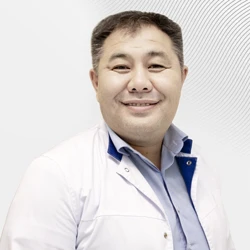
.webp)
